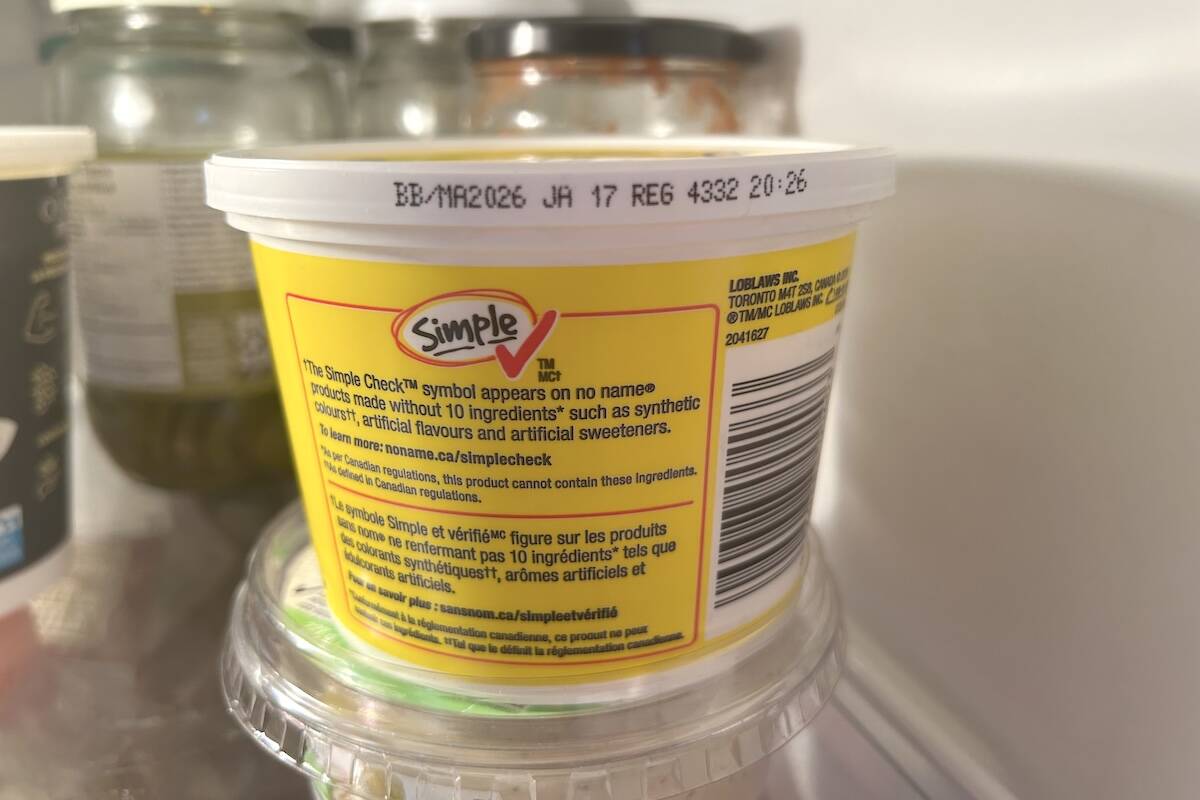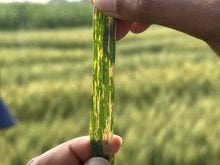United Kingdom and European Union organic groups are pushing for coexistence strategies as their governments debate how to regulate gene-edited crops.
The problem is that the very idea of gene-edited crops is anathema to their sector.
“The credibility of organically certified produce is built on the confidence of the shopper that they are choosing to buy organic food because the standards are rigorously maintained,” said a spokesperson for OF&G Organic, an organic certification body in the U.K.
A patchwork of international regulations is developing around gene-edited crops.
Read Also

Best before doesn’t mean bad after
Best before dates are not expiry dates, and the confusion often leads to plenty of food waste.
The U.K. passed the Genetic Technology Act in March. The legislation set the stage to separate gene-edited crops and animals (called “precision-bred” in the U.K.) from genetically modified organisms as far as regulations are concerned, according to a government news release.
The British government indicated the act would allow gene-edited crops to be more freely developed and grown. Regulations related to the law are now under consultation.
The European Commission, part of the executive of the EU, is undergoing its own debate on “new genomic techniques” (NGTs), an umbrella term that includes gene editing.
Organic certification bodies in the U.K. and EU do not allow gene-edited or genetically modified crops, nor does Canadian organic certification.
In Canada, where genetically modified canola, soybeans and other crops are commonly grown, organic farmers use buffer strips and co-ordinate with neighbours to avoid cross-contamination. When growers can’t obtain certified organic seed, they may obtain an affidavit from the seed company showing their seed is non-GMO.
This spring, the Canadian Food Inspection Agency released guidance on gene-edited crops that will see them regulated like conventionally bred varieties.
Groups including the Canada Organic Trade Association were not pleased when the decision did not include mandatory transparency or traceability measures for gene-edited crops.
The federal government promised a steering committee to oversee transparency and an expansion of Seeds Canada’s variety transparency database. However, the organic sector has argued that, since these measures aren’t mandated, crops will ‘sneak’ into the food system, making it impossible to ensure that organic crops aren’t contaminated.
Coexistence in the U.K.
In the EU and U.K., in contrast, GMO crops are not widely grown.
“There’s absolutely no GMO crops grown commercially in the U.K.,” said Liz O’Neill, director of GM Freeze. As a result, contamination prevention isn’t part of farmers’ business models.
GM Freeze is a U.K. umbrella group that campaigns against GM0 foods. It represents some organic groups.
While many GM0 crops are legal in the U.K., there are strict labelling requirements for food and these put off many consumers and big brands, O’Neill said. GMOs are generally limited to imported foods.
Organic groups are preparing to take greater precautions, but it’s generally viewed as the government’s responsibility to ensure organic certification can continue, O’Neill said.
Before passage of the U.K.’s March act, “OF&G urged (the) U.K. government to reassess the removal of labelling and traceability requirements,” the company’s spokesperson said. “This ‘light touch’ regulation allows gene-edited crops and animals to effectively hide in the food system, taking away consumer choice.”
“The U.K. needs a strong regulatory framework for the rollout of new genomic techniques — one that is responsibly [administrated] and rigorously applied,” the spokesperson added.
GM Freeze advocates for consumer labelling of foods containing gene-edited ingredients, O’Neill said. That would make end-to-end supply-chain traceability necessary and, in her organization’s view, would lower the risk of inadvertent contamination.
It also wants to see government measures — regulatory or guidance-based — to prevent cross-contamination of organic crops.
Coexistence in the EU
The European Commission launched a review of the EU’s rules on gene editing and GMOs in 2021 after ruling its current legislation was “not fit for purpose,” Reuters reported in April of that year.
About 20 years ago, the EU put rigid traceability and labelling requirements on GMOs due to public distrust, and these have led to low adoption of GM crops, said Helene Schmutzler, a policy assistant with IFOAM Organics Europe, an umbrella organization for the European organic food sector.
“The sentiment is still generally quite similar,” she said.
A 2023 report from the Rathenau Institute found that Dutch citizens were unanimous in their view that “regulation of NGT crops is necessary … to prevent harms to the environment and human health, to give consumers freedom of choice, to guard against the potential of the technology to increase inequalities and to ensure that the technology is directed towards contributing to solutions to societal problems.”
The report noted a split in the finer details of public opinion, however. Some Dutch consumers viewed NGTs as necessary to deal with issues like climate change, while others thought they were likely to cause more problems for agriculture and food.
A 2021 report from the U.S. National Library of Medicine indicates that Europeans who say they’re concerned about GMOs in food and drink decreased to 27 per cent in 2019 from 63 per cent in 2005, which it says will pave the way for new regulations.
However, “consumers have the right to know what they buy and if they don’t like it, they have to have the right not to buy it also,” Schmutzler said.
Her organization’s position is that “the burden of ensuring non-GMO production should not fall on farmers and processors who do not wish to use NGTs,” according to a briefing document from the group.
The European Commission has committed to ensuring co-existence, Schmutzler said.
However, “for ‘coexistence’ to be conceivable … EU legal requirements for NGTs need to include identification and traceability of products obtained through NGTs,” her organization stated.
IFOAM Organics Europe also asks that all EU member states set up coexistence measures, including the right to ban cultivation of NGT crops “where coexistence is not feasible.”
It also calls for a liability regime to set up compensation if crops are contaminated.


















